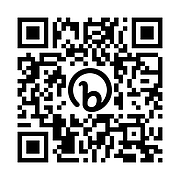CBHA receives grant to help youth access mental health care
OTHELLO — The Columbia Basin Health Association is the recipient of a $500,000 grant designed to help children and teens who need behavioral health care to get it more quickly. The CBHA was one of five winners nationwide in the “Community Health Entrepreneur Challenge.”
Dalina Hoffman, CBHA director of programs, said the money will be used to build an AI platform that will help young people connect with mental health professionals.
“We use an interactive artificial intelligence to help guide the students or counselors through a process of scheduling an appointment with a behavioral health consultant, virtually,” Hoffman said. “By doing that we are using an innovative way to reach our students so they can get those mental health services using technology, which is what they use every day.”
The competition was sponsored by Advocates for Community Health and UnitedHealthcare.
The Othello School District has been using the platform for about two weeks, Hoffman said. The health association plans to expand it to the Connell and North Franklin school districts.
“So they can grab their phone (and) scan a QR code,” Hoffman said. “With that QR code, they’ll go to a chatbot and it will ask them a series of questions. (If) they need immediate assistance we can actually connect them to the crisis line, where they can speak to someone right there and then. Or if they want to schedule an appointment with a behavioral consultant, virtually, they’re able to do that.”
The online system means young people can have access to a mental health professional without leaving school, she said. They’re online visits, but all the behavioral health professionals are CBHA employees.
“We’re really excited with the initiative that was put forward here because it’s really bolstering existing providers that are serving the community,” said Kate Paris, vice president of policy and advocacy for UnitedHealthcare Community & State.
Because not all children have a phone, Hoffman said each participating school will have a tablet setup that allows a counselor to connect the youths to CBHA.
The goal, she said, is to ensure young people get the care they need as quickly as possible.
“To receive behavioral health services, it can take up to three months sometimes to schedule an appointment,” Hoffman said. “So having providers specifically for school-based behavioral health is a solution for that.”
School officials within CBHA’s service area had identified that as an area where they needed help getting the services, she said, and it’s been an area of focus for the health association too.
“And it’s specifically for the school, and students are able to scan it,” Hoffman said.
The QR code will be as visible as CBHA can make it, she said.
“We’re going to get stickers, bag tags, everything pretty much that kids are using,” she said. “Now they have stickers on their water bottles, so we’re going to give them water bottles. And I reached out to all the superintendents and counselors, so they also can provide ideas (about) what are the things that students at that school are using or would probably have accessible to them,” she said. “Basically we’re going to put it everywhere, so they know it’s accessible.”
The health association also is considering holding some events to provide children and teens with more information on mental health and encourage them to seek help if they need it.
“It’s something that CBHA wants to be a part of, to eliminate those barriers. Fifty percent of our patients are under the age of 18, so we know that the majority of them are students. This is a huge issue across the areas we serve, and we want to be able to help with that.”
Cheryl Schweizer may be reached via email at [email protected].



